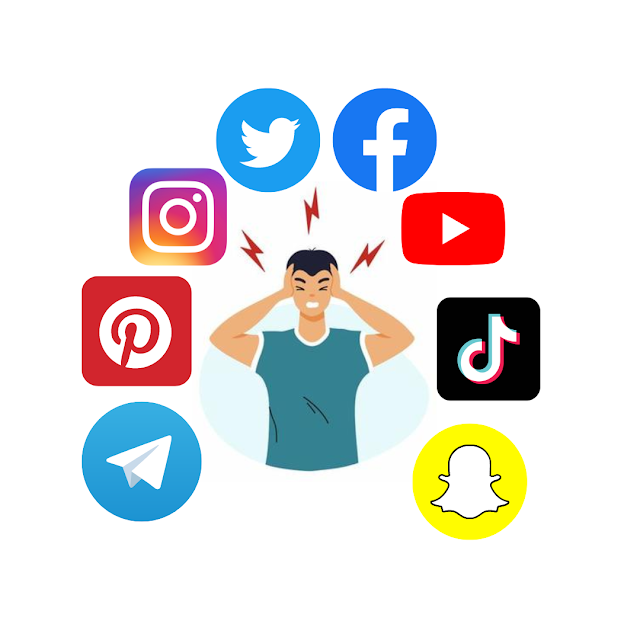On the discontents of social media
Yesterday, a tragedy occurred in Baltimore. A cargo ship lost power and the ability to steer. Uncontrolled, it hit the Francis Scott Key Bridge, which spans the entrance to Baltimore Harbor. The force of the impact caused the bridge to buckle and collapse. As of this writing, emergency services are still looking for victims.
One would think an event like this would be pretty straightforward. Ship loses power, is unable to steer, and tragically causes a catastrophe.
However, on social media we were treated to "real causes" for the accident. The crew were on drugs. It was the fault of the open borders. Mossad was behind it to punish the US for abstaining in the cease fire vote in the United Nations. And so on.
And, of course, all these conspiracies proliferated at light speed on social media.
I remember the days of the Ferguson protests in 2014. We were all heady with excitement as the uprising was covered live on Twitter. We saw in real time the over-the-top police response to the protests. We saw in real time expressing their anguish over another Black man being killed by police. I lauded social media at that time, saying something like "Now the world sees what's happening without a media filter."
How wrong I was.
I've been on social media in one form or another since the 1990s. From bulletin board systems to Internet Relay Chat to Usenet, those were heady times. We were meeting and speaking with people from around the world. I met my wife on IRC. As I've said before, it was a utopian moment. Bringing people together from around the world would perforce bring people closer together, understand each other, make war a relic of the dark past.
Of course, it turned out to be nothing of the sort.
All utopias fail because the snake is ever-present. This new technology of the internet quite quickly revealed itself open to the same manipulation as all previous communication technologies. But the internet was worse; it's instantaneous nature meant that a lie could spread around the world before truth was even out of bed, much less putting on a shoe. Malign state actors realized that it was the most potent weapon ever created for dissemination of dis- and misinformation. It's immediacy weaponized lies to an extent which would have make Goebbels salivate.
Once corporations monetized the internet, that pervasiveness of lies became a profit center. Who cares if it's true or false? If people click on the content, thus generating ad revenue, for-profit companies were not about to stanch the flow of money. They cared not for the source of their revenue, just that it would keep coming in. Buddhists in Burma used Facebook to spread fear and hatred of Rohingya Muslims. Twitter is a cesspool of fascism and racism since even before its takeover by Elon Musk.
One can say that the solution is increased moderation. This blog is strictly moderated, which is why it's the community it is. But it's also a small community. Policing the internet is analogous to policing the real world. In a city like Los Angeles, crime is an inescapability. We can make it safer; we can't make it safe. The same applies to social media. But there's a stark difference. Governments are instituted to maintain law and order. It is their entire reason for existence, allowing society to function. There is no profit motive in letting everything go to rot. The same is not true for social media. The owners of these companies place profit over all other considerations. Meta, parent of Facebook, brags about the resources it pours into content moderation. But it's going to do only so much, before the outlays to moderate content begin to bite into profits. On services like Gab, that isn't even a consideration. They revel in ideologically-driven fantasies of "absolute" free speech, modern day digital John Galts.
This is no way for human beings to live. We see this on this blog, where members regularly bemoan the filth on Twitter, worn down from the constant invective and vitriol. Something has to give. The backlash against TikTok is indicative of the strains impacting social media. It incentivizes content which generates traffic, and that content and behavior are more often than not deleterious to our mental and emotional wellbeing.
What's the solution? That's the $64,000 question, isn't it? Government regulation? Yes, but do you want governments being heavy-handed with the internet? We see the results in China and Russia. Removing social media from our lives? It still does serve several useful functions.
Yes, stricter government regulation around areas where there is no free speech right, like outright disinformation. This could also involve cutting off actors like Russia, China, and Iran from the global internet, so that their bots are not able to infest the social media space in the West.
But that can only go so far. As always, the answer is in us. Choose what social media you ingest as carefully as you choose your dinner. Don't spend all day in front of your computer or on your phone. Do things in the real world which have no relation to the online world. Touch grass. And, ultimately, realize that you are not the consumer of social media; social media sells you as the product. Take back that power, and live fully human lives. Otherwise, we will see our civilization wither away from a surfeit of toxicity, as devastating as any amount of climate change.
***
Like what you're reading? Never miss another post! Get notified via email here.
Donate at the link below to keep us going.
